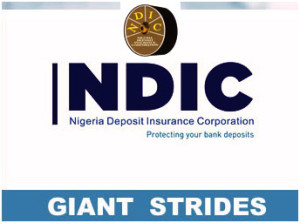 The Nigeria Deposit Insurance Corporation (NDIC) has established a framework for insuring deposit liabilities of non-interest financial institutions in the country.
The Nigeria Deposit Insurance Corporation (NDIC) has established a framework for insuring deposit liabilities of non-interest financial institutions in the country.
The NDIC, in a statement on Tuesday, noted that the successful take-off of the non-interest banking was being championed by Ja’iz Bank, Stanbic IBTC and Sterling Bank.
According to the statement, the public policy objectives of the framework are based on public interest, which seeks to provide corresponding protection to holders of non-interest financial products similar to that of conventional banks.
The objectives are given as depositor protection against loss in the event of failure of any non-interest bank; to engender public confidence and enhance resilience of non-interest financial institutions; to encourage competitiveness of non-interest financial institutions; to help to contain the cost of resolving failed non-interest banks and provide an orderly failure resolution mechanism; and to promote and contribute to the stability of Nigeria’s financial system.
According to the NDIC, a non-interest bank is a banking model which offers banking products, engages in trading, investments and commercial services without conventional interest charges. It is rather restricted to a profit and loss sharing formula on its products.
The Maximum Deposit Insurance Coverage for the non-interest banking institutions would be the same as the conventional banks i.e. N500,000 and N200,000 per depositor per account in Deposit Money Banks and Microfinance Banks respectively, the NDIC said.
Non-interest deposits that will be covered under the scheme are safe-keeping deposit (Wadi’ah); interest-free deposit for investment (Qard); profit sharing/loss bearing deposit (Mudarabah); profit and loss sharing deposit (Musharakah); and any other deposit type that is non-interest based and approved by the Central Bank of Nigeria, according to the statement.
“The following financial products will however not be covered under the scheme: insider deposits – deposits of staff, including directors of non-interest banks or financial institutions; counter-claims from one person who maintains both a deposit account and a non-interest bearing loan account and or a loan based on Murabahah financing where the deposit account serves as a collateral for either or both of the Loan Accounts and inter-bank takings,” the NDIC said.
By Dike Onwuamaeze

